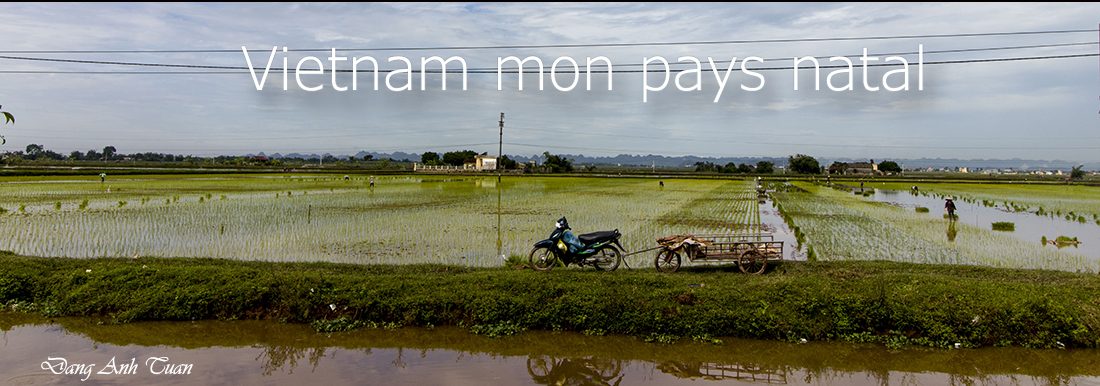Vietnam possesses an important literature, ancient as well as modern. Because of Chinese influence, the ancient literature was written in Chinese characters. It was only in about 13th century that the « nôm » began to replace the Chinese characters. Although the « nom » remains the expression of the common Vietnamese, it supposes the mastering of classical Chinese penmanship and the Vietnamese pronunciation of Chinese characters.
The Vietnamese literature tried to develop and freed itself from the Chinese model since 15th century, not only in style but also in theme. Nguyễn Trãi is one of the poets the most known by Vietnamese people. We owe him a collection of 254 poems in national language ( Quốc Âm Thi Tập ), whose translation into French language under the direction of P. Schneider is found in the Edition of CNRS, 1978, Paris. Nguyễn Trãi famous was his Bình Ngô Ðại Cáo ( Great Proclamation of The Pacification of The Ngô ). It is one of the most beautiful monuments of the Vietnamese literature.
But the most famous poems remain Chinh phu ngâm of poetess Ðoàn Thị Ðiểm and Kim Vân Kiều of Nguyễn Du ( 1756-1820 ). The latter composed during his retirement a novel composed of 3254 verses which symbolises for the majority of Vietnamese the heart and soul of the nation .
Everyone of Vietnamese knows it or many parts of it by heart. It is important to note that this masterpiece of the Vietnamese literature is also one of the masterpieces of world literature.
It is a poignant love story adapted from a Chinese novel, depicting an abundance of thoughts on the meaning of life, war, love and above all the purity of the soul inaccessible to bodily taints. The three key characters in this novel are Kim, Vân and Kiều. Separated from Kim by cruel circumstances and after so many years of suffering and humiliation, Kiều was rescued from suicide by fishermen who fished her from the river where she had wanted to drown herself. Following is an excerpt of this novel that describes the reunion of Kim and Kieu at the temple where she had spent her peaceful days.
In the joy of their reunion, they are moved by thought of their love of days before,
From the time their youth blossomed, tender like a lotus, delicious like a peach,
Fifteen years have gone by and now the dream has come true.
The detachment from the Chinese models has been accelerated by the development of the « quốc ngữ » ( Vietnamese writing in Roman alphabet ) favored by the colonization. In 1932, motivated by Nguyễn Tường Tam also known as Nhat Linh, writing club Tự Lực Văn Ðoàn was founded. This movement endeavored itself to the creation of a national literature starting from traditional bases and the most acceptable foreign influences. It relied on a review called Ngày Nay whose editors team was made of known writers such as Khái Hưng, Thạch Lam, Thế Lữ etc..
The Vietnamese literature written in French began with Phạm Quỳnh through articles of reflection on Vietnamese culture and the difficulty of dialogue between eastern and western cultures. Phạm Duy Khiêm published legends and an autobiographic novel. Phạm Văn Ky elicited in a profound manner the dialogue of the East and the West in his romanesque works ( Blood Brothers, 1947; Those Who Will Reign, 1954 etc…). While historical evolution and mostly the war seemed to drain that literature, the arrival in France of several refugees has revived a literature of witnessing ( Kim Lefèvre ) and also one in search of identity.
- Independent literary group (Tự Lực văn đoàn)
- Hồ Xuân Hương poetess
- Nguyễn Huy Thiệp

